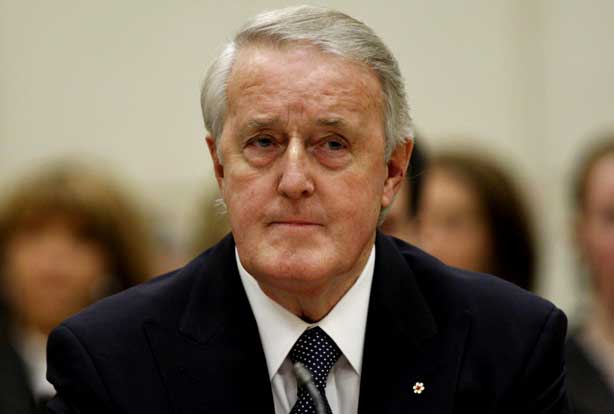When he left office in 1993, Brian Mulroney had the lowest approval ratings of any Prime Minister since the Second World War. Even today, over 20 years after he stepped down, Mulroney is still regarded negatively by a large majority of Canadians. However, the hostility towards Mulroney is largely unjustified. Far from being one of Canada’s worst Prime Ministers, he was actually one of the better ones.
When Mulroney was elected in 1984, Canada was in the midst of an economic recession. The previous Trudeau government had bequeathed its successor with the largest peacetime deficit in Canadian history at eight per cent of gross domestic product, inflation and interest rates in double digits, anemic productivity growth, and record levels of unemployment. Rather than merely playing it safe or tinkering around the edges, the new government decided to implement a bold set of reforms to get to the heart of Canada’s economic malaise.
Industries ranging from oil and gas to finance were opened up to greater competition. Mulroney was able to both improve the efficiency of the tax system and sharply reduce individual and corporate income tax rates by introducing the GST. The centrepiece of this bout of radical change was the Canada-U.S. Free Trade Agreement of 1987, which exposed Canadian industries to greater competitive pressures and gave Canadian exporters unfettered access to the world’s largest economy.
These reforms took time to yield benefits. There is no doubt that the adjustment process was painful for many who lost their jobs or whose businesses went bankrupt. However, these reforms were a necessary remedy for an ailing Canadian economy. In 1999, the International Monetary Foundation concluded that almost all of the stellar economic performance Canada enjoyed could be attributed to the restructuring that the Canadian economy had undergone in the 1980s. Despite the fact that the reforms cost him political popularity, Mulroney showed that he had a keen sense of the national interest by staying the course.
Mulroney also succeeded in improving Canada-U.S. relations. Under Trudeau, relations with Americans had deteriorated dramatically. Mulroney, on the other hand, struck up friendships with Presidents Reagan, Bush, and Clinton. Because of this, many in Canada accused him of being nothing more than a lackey to the United States. However, this perception is again unfair. Though Canada emphasized areas of close cooperation on many files that ranged from defence to trade, Mulroney was unafraid to diverge from U.S. foreign policy when he felt it was in Canada’s best interest. Under Mulroney, the Canadian government would not try to create false differences or distance itself from the U.S. simply to appease an immature and shortsighted sense of Canadian nationalism.
In 1991, Mulroney finally reached an agreement with the U.S. in which the U.S. promised to sharply reduce sulphur dioxide emissions in order to curb the acid rain that industrial pollution in the U.S. was causing in Canada. The agreement, which was sought by many of his predecessors, continues to bring environmental benefits to Canadians today.
Mulroney was far from perfect. His forays into the national unity debate with the Meech Lake constitutional settlement proposals were in many ways foolhardy. The proposals went too far for English Canada but were too timid for many Quebecers and unfortunately stoked further secessionist sentiments in Quebec. After crusading against patronage and other forms of soft corruption as opposition leader, Mulroney happily dispensed favours to many of his fellow Conservatives after taking office. Yet in spite of all this, Mulroney actually had a very respectable record as prime minister. His actions in office, while unpopular, resulted in long-lasting benefits. The economic reforms of the 1980s were pivotal in revitalizing Canada’s stagnating economy and improved relations with the United States allowed Canada enhanced global influence. The greatest testament to Mulroney’s legacy may be the endurance of the policies he brought in. Upon gaining power, his political opponents, who once called for a reversal of his reforms, left them in place.







